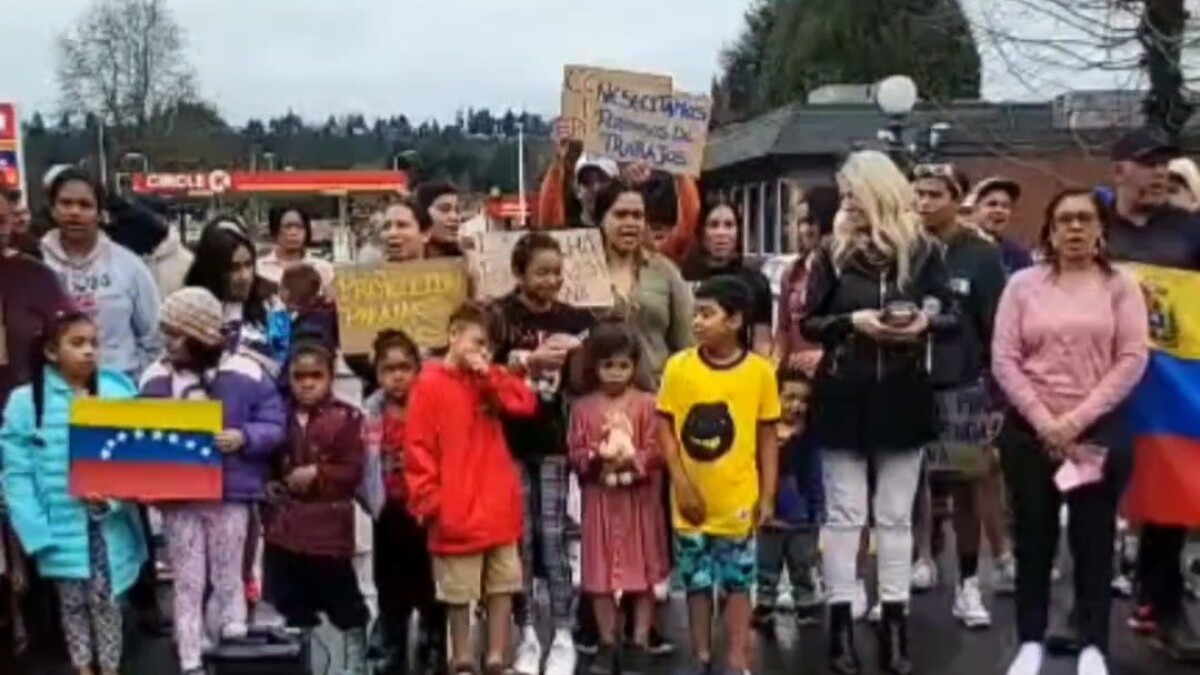On a recent weekday morning, a group of asylum seekers from Venezuela congregated in the parking lot of a Quality Inn hotel in Kent, Washington. Despite the bustling atmosphere, everyone appeared to be in high spirits. Their destination: a new temporary residence, a hotel near the Seattle-Tacoma International Airport.
Gabriel Hernandez, aged 23, along with his three brothers and father, loaded cushions and other donated items onto a cart as they entered their assigned hotel room. Hernandez expressed that the challenging journey to America seemed justified from a financial perspective.
According to Hernandez, “The economy doesn’t work at all. Here, you can earn \(40 to \)50 in less than a day. In Venezuela, you might earn \(30 to \)40 in a week or even a month.”
While financial reasons motivated some to seek asylum, others cited political persecution as their primary driver for leaving their homeland.
Recently, asylum seekers, predominantly from Venezuela, sought refuge and assistance. This relocation marked their third move in recent months to a new accommodation.
The individuals currently housed in this hotel represent a fraction of the hundreds of Venezuelans who have received support from King County, which allocated $3 million to accommodate over 350 people last year.
Governor Jay Inslee has proposed an additional \(5 million for the state Office of Refugee and Immigrant Assistance to aid individuals who do not qualify for refugee assistance. Furthermore, an extra \)3 million is earmarked for a grant program assisting counties in supporting newly arrived refugees and asylum seekers, pending approval for availability this summer.
Over the past decade, approximately 8 million Venezuelans, constituting a quarter of the population, have fled the country due to economic turmoil and the dictatorship of President Nicolás Maduro.
Adriana Figueira, a prominent figure among the asylum applicants, shared her poignant story. Leaving her three children, aged 19, 15, and 9, in the care of their grandmother, she embarked on the journey for a better life following the death of her husband due to medical complications linked to malnutrition.
Figueira, who emphasized the right to seek asylum under U.S. and international laws, stressed the importance of providing her children with a brighter future and increased financial security.
Seeking asylum represents a fundamental right for Figueira and her fellow migrants, a right protected by both U.S. and international laws.
While some migrants, like Hernandez, were drawn to the Pacific Northwest by the promise of well-paying jobs and reduced employment competition compared to other destinations, many are still awaiting work authorization. Asylum seekers are legally prohibited from applying for work permits until five months after submitting their asylum application, a process that can span several years.
Despite attempts to secure informal employment, such as Joxelen Martinez’s involvement in home demolitions, many have fallen victim to wage theft, exacerbating their financial struggles.
With concerns about anti-immigrant sentiments reignited by political discourse, particularly in light of the potential re-election of former President Donald Trump, asylum seekers like Hernandez remain cautious about their future in the United States.
Figueira’s proactive approach led to the establishment of a new organization called “Communities Without Borders,” aimed at facilitating legal processes for asylum seekers to obtain necessary documentation and work permits.
As the deadline for checking out of the hotel approaches, uncertainty looms over the future of these asylum seekers. Nevertheless, Figueira remains resolute, viewing their current situation as merely the initial phase of their journey.
